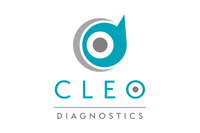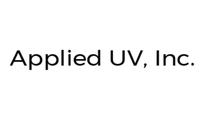mHealth—or mobile health technology—has been gathering steam over the last few years. In 2017, that momentum will only pick up.
What do smartphones have to do with medical device manufacturers? Everything, it would seem. Experts say that going forward the two will be inextricably entwined. That’s because mHealth—or mobile health technology—has been gathering steam over the last few years, and in 2017, that momentum will only pick up.
What is mHealth?
The mHealth market can be hard to define. Put simply, it encompasses any kind of medical care accessed through a mobile device.
A camera phone, for example, allows directly observed therapy to happen at home: patients film themselves taking medication and submit the recording to their physician. Apps exist that help patients to schedule complex therapies and dosages, or that walk them through physio exercises. There are even cell phone attachments that detect cataracts or identify bacteria levels in water.
These technologies are all included under the umbrella term “mHealth.”
The impact of mHealth
The applications of mHealth are most exciting—and impactful—for developing nations, since the technology makes physician care more accessible. “The penetration of mobile phone networks in many low and middle income countries surpasses other infrastructure such as paved roads and electricity,” finds a report from the World Health Organization. So while people may not be able to physically reach a hospital, they can interact with a physician through a mobile app.
But mHealth is also making waves in developed nations. Here, the technology can be used to empower patients. A platform from Reliq Health Technologies (TSXV:RHT), for example, facilitates at-home recovery for patients. Their medication management app allows patients to schedule and remember drug doses. It can help senior citizens or the extremely ill retain their sense of independence.
At the same time, this app sends data to the patient’s caregivers and health professionals, providing everyone with peace of mind. In this way, mHealth has powered the collaborative care movement—a team approach to recovery and healing.
Use in clinical trials
Experts predict that mHealth technologies will become pivotal in clinical trials, since they provide objective, rather than subjective, data. Researchers no longer have to ask trial participants to estimate how active they are, for example—instead, patients can wear a fitness tracker that transmits health data in real time.
GlaxoSmithKline (NYSE:GSK) recently launched a study using an app built from Apple’s (NASDAQ:AAPL) ResearchKit software. “Our goal is to engage with patients in a new way that integrates the research into their daily lives,” said Rob DiCicco, the company’s VP of Clinical Innovation. Now, face-to-face patient/physician interaction isn’t always necessary.
This “new way” might make life easier for clinical trial participants—but it has business benefits as well. Clinical trials are costly, and mHealth may one day bring those expenses down.
That means investors should expect to see more overlap between technology companies and medical device or pharmaceutical manufacturers going forward. “If we really want to transform clinical trials and put a significant dent in the two billion dollar price tag, I think the two sectors really have to leverage each other’s strengths and work well together,” GlaxoSmithKline’s Michelle Crouthamel told Forbes.
mHealth in 2017 and beyond
So what will the impact of mHealth be in 2017 and beyond? A report from Deloitte suggests these technologies will become even more critical to clinical trials, helping to measure not just a medication’s efficacy, but also how it impacts the patient’s quality of life.
Expect also to see wearable technologies prescribed, helping physicians to monitor medication adherence and an individual’s response to therapy. Such technology should minimize return or emergency trips to the hospital. It will also allow admitted patients to be discharged faster.
Finally, expect to see patients taking a more active role in their care plan. Medication management apps will allow individuals to retain their autonomy and track their own progress, while mobile physiotherapy apps will make it easier to perform exercises at home.
And what does that all mean for investors?
Medical device manufacturers who embrace mHealth are worth your attention. The market for this kind of technology is growing, especially as pharmaceutical companies look for digital platforms and tools to expedite and improve their clinical trials. And as people the world over become more health-conscious, the consumer mHealth market looks promising as well.
Don’t forget to follow us @INN_LifeScience for real-time news updates.
Securities Disclosure: I, Chelsea Pratt, hold no direct investment interest in any company mentioned in this article.



